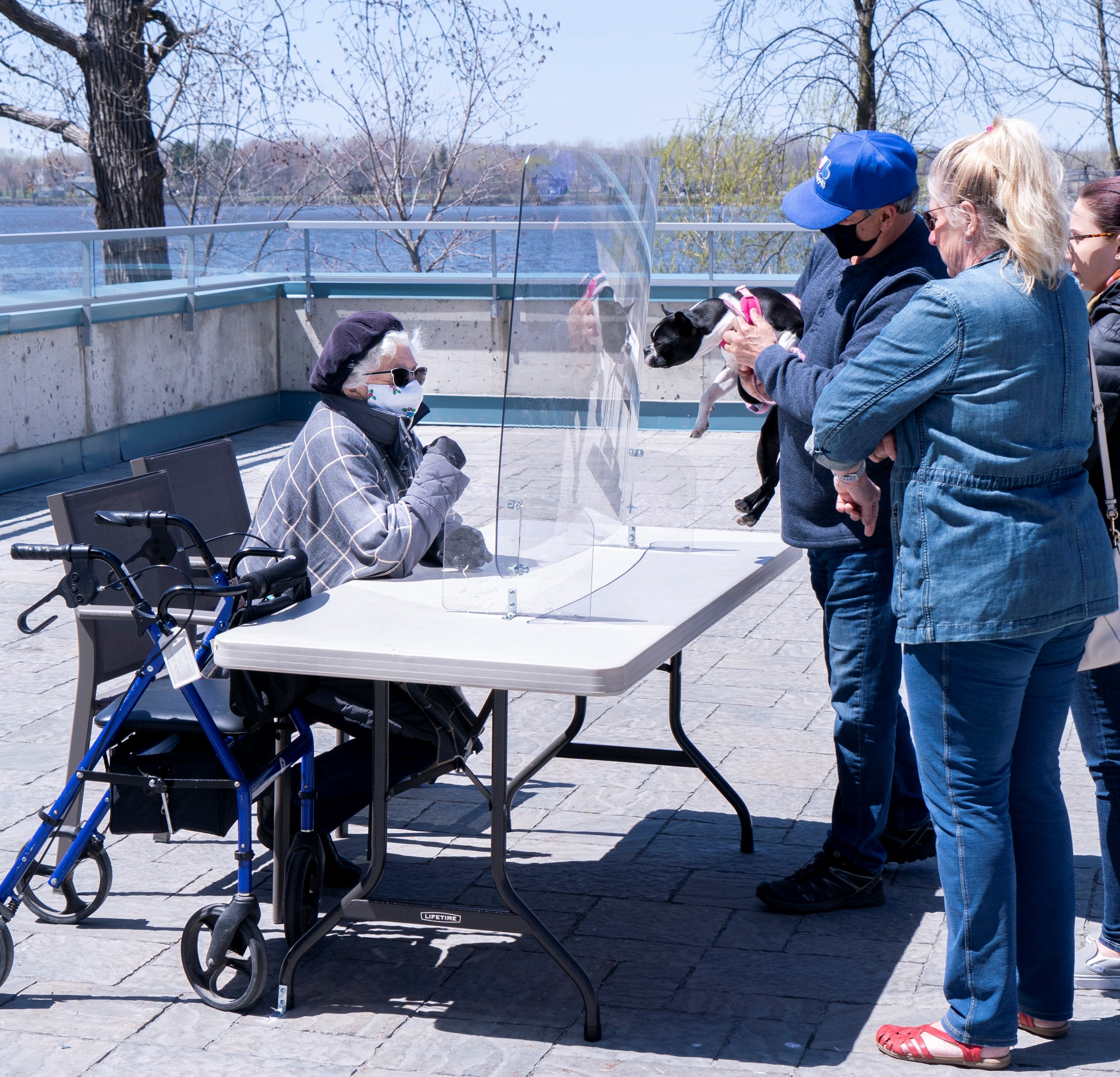Any group of people is more than the sum of its parts, because you don’t know how much you know until it becomes relevant; and another person’s brain strikes sparks off your own. This is why people talk about the creative environment of an office, but it’s just as true of any family, or even of any household, especially when most of its living is being done together. Here we have one of the compensations of the current lockdown: although people are unable to act completely independently, which can be irksome, it does mean that there is a combined intelligence and experience to draw on, which can be highly effective.
In a shared house, some people may choose not to interact with others, or only to do so in very short formal bursts (saying Good morning or Good night as you pass through the hall). Life under lockdown must be very hard for them, and for their housemates. Some people would like to be able to do this in the family home, but can’t get away with it full time, especially not for weeks on end. Your family can be far more annoying than anyone else; but, by the same token, you’re allowed to shout at them if you feel the need, and, crucially, they still have to love you anyway and afterwards.
Living with adult children is a sort of strange hybrid. When the household consists of parents and small children, it’s fairly straightforward to organise, however exhausting; when it consists of young adults sharing, who are roughly at the same stage, that’s very different, but everyone knows they have to negotiate; when it’s a household of parents and grown-up children at different stages, it can be weird. Some children are naturally more biddable, but it is unwise to make any assumptions. Everyone has no-go areas which have to be respected; and everyone has different areas of expertise that it would be stupid to ignore. Some situations remind the parents of when the children were little, which can be a pleasure. If the children are reminded too often, then the parents are being too heavy-handed, and not appreciating the balance of the relationship.
When the children are grown up, even if you think they are being unreasonable, you have to behave as though they weren’t your child. There’s no point in repeating old battles, and one of the basic rules of parenting is never to fight a battle you can’t win. If I didn’t manage to convince a child (John) not to be frightened of witches sailing off in his eggshell when he was little, I’m not going to waste my breath now that he’s reached thirty. I just take care to crush them in the compost bucket (only for him to be revolted by my not doing it with a fork….). He says it’s my fault for telling him fairy stories.
Being a family as well as a household has advantages as well as drawbacks. There is a bedrock of shared experience, not as much as the parents remember, but more than the children might prefer. There’s definitely a shared language (occasionally known in this family as the idiotlect), and a treasure trove of shared jokes. Long-established shared houses presumably move towards these, but most people’s experience of shared houses seems to be a fairly loose grouping which changes every year or so, losing a few people and starting new ones. But it takes time to develop a common set of references, and if new people come in, you don’t want to make them feel excluded, so you don’t tend to hark back too much. In a family, you always have the past available as source material, although some members might prefer some events to remain in obscurity (Rachel’s experience with the one family pet, about which there are various versions; Mary’s particular unfinished craft project, though it’s a brave sister who brings that up).
For any household, you could draw up a list of different topics and who is the expert, but the best results come from asking everyone to contribute. Our children call this the ‘hivemind’, and regularly consulted it on WhatsApp, even before coronavirus. Now, the good thing about WhatsApp is that our absentees and shielded can also contribute. They also serve who only stand and text. It’s particularly useful for definitions, as different people have come across a word being used differently in different fields, and all of the references might help. I talked about the children having different narratives before and it can be a real strength. Put together, we have a vast field of reference, and it’s available to anyone who asks a question.
The obvious example is new technology. I am good at the technology I use regularly (there is some brilliant music software on the web), and one of my proudest moments came when John, who teaches coding for a living, told me that he thought he could teach me easily. If you could hear what he says about some of his clients, you would realise why I was so gratified. But all the children have various digital areas of expertise, and it’s salutary to see how they co-operate over knotty problems to produce a best solution. No one thinks he knows all the answers, but no one’s contribution goes unheard either. It even extends to hardware; somebody will have the particular connector you need. The children are far more used to online shopping than I am; but I’m brilliant at forward planning. We need both.
Everyone’s area of expertise is equally valuable. You may not know much about a current question, but just wait; your input will be vital shortly. All sorts of things come up; people consult about when the park is less busy for the runners among us, and which routes less muddy (prompted partly by helpful maternal hints about mess in the hall), which shops are still open and when. We try to avoid going out as much as possible, but some people find this more difficult than others, so we get them on errands to justify leaving the homestead. I have had to queue for bread in various places, but never (till recently) at home; but knowing that you have coped before somehow helps. Going out for sweeties doesn’t count as essential, even if you have an online test looming, but if you add in a few helpful groceries, the sweeties hardly notice.
Practical questions or highly esoteric ones, they all get a hearing, especially during mealtimes. We can discuss (some people might say argue about) anything under the sun, and I enjoy watching how a question will be raised at one meal, discussed and then left to percolate until it surfaces again. Sometimes the conversation stays practical, sometimes it triggers jokes or teasing, but they in turn can move us towards an answer. It’s like watching a concatenation of trapeze artists or some sort of planetary relay race; each person moves things on a bit, but the music of the spheres brings all the trajectories into a harmonious conclusion. On a good day. Shared laughter helps a lot.
Luckily it takes very little to set any of us off. A couple of days back, we had a grocery delivery, and after the deliverer rang the doorbell, it would not stop ringing. This is a new doorbell, installed ten days before lockdown. We used to have a temperamental old one, which sounded only sometimes, and I couldn’t hear it anyway, unless I was right next to it. So we had finally bought a new doorbell, with two soundboxes (our house is tall and thin: one went into the basement and one halfway up). Now we had people stacked on three floors working on conference calls, the doorbell going bananas, me dealing with the delivery man, Rachel unable to emerge from her room next to one of the soundboxes, and Margaret haring up and down the stairs trying to work out what to do. Every child that appeared accused a different one of having broken the doorbell. It took most of us to fix it. Once the delivery man left, John declared himself the main electronics expert and started taking out batteries to establish what was malfunctioning, but the bell wouldn’t stop ringing until all three parts were dismantled. I’m so glad we went for an anonymous ding-dong instead of Darth Vader’s theme tune or something similar; that was quite bad enough.
Mary had to stop working because it was so noisy. She took some of the delivery downstairs to report on the downstairs soundbox; Rachel stood on the stairs and visually scanned the delivery for Margaret to tick things off on the next floor down; the only person who didn’t crease up was my husband who had to ignore everything, as he was running a seminar in the sitting room (next to the second soundbox). I am proud to say that my main contribution (apart from dealing with the delivery man) was to supply the knitting needle needed to dismantle the actual doorbell. I remain, after all, the family expert on old technology. But we all helped, we were all weak with laughter by the end, and we did it together.
Kate Keefe was born in Staffordshire, England and studied at Cambridge and Oxford Universities. She has lived and sung in England, Italy, the Czech Republic, Kenya, Georgia, Russia and the Balkans. She writes musical settings for mass, found here, and blogs about it here. You can follow her on facebook and twitter.



 Loading ...
Loading ...
What do you think?
You can post as a subscriber user ...
User comments (0)